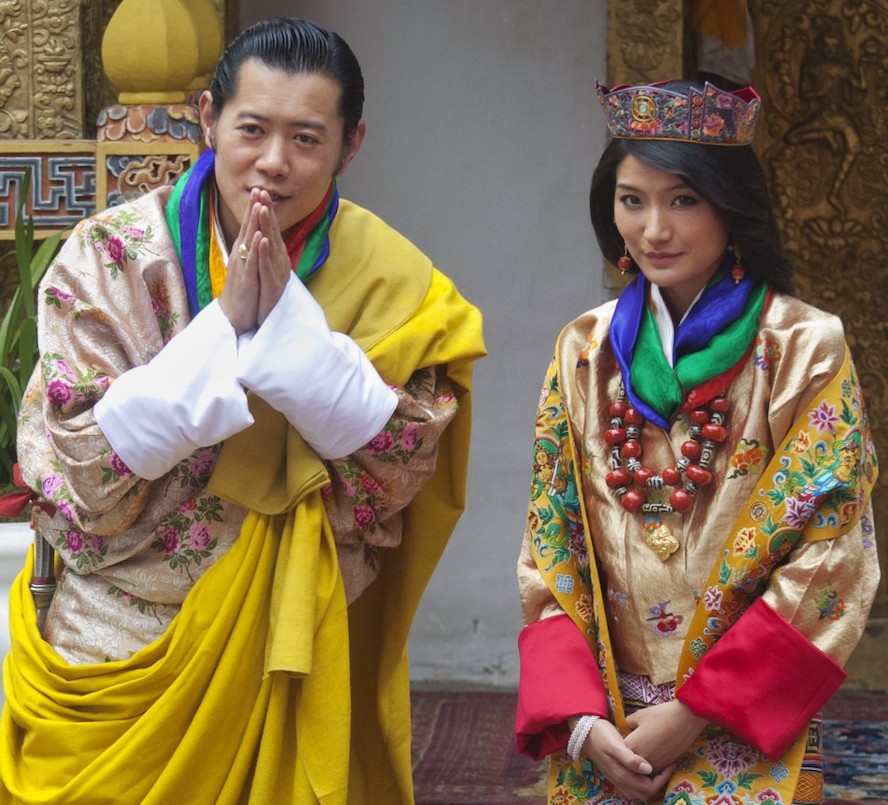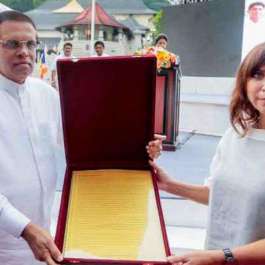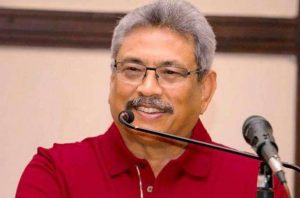
From ibtimes.com
As the Buddhist kingdom of Bhutan marked the 40th birthday of King Jigme Khesar Namgyel Wangchuck, the Druk Gyalpo or “Dragon King,” on Friday, the country’s prime minister, Lotay Tshering, urged the Bhutanese people to plant a tree and adopt a stray dog as a birthday gift for the monarch, who is widely beloved in the Himalayan nation.
“His Majesty turns 40. It is a new step into a new decade. We rejoice the day a visionary King came into our lives, four decades ago,” said the prime minister during a public event. (Kuensel)
Tshering called on each person in the country undertake a pledge to perform three acts as a gesture of respect for the monarch and the nation: to plant a tree, adopt a stray dog, and to recycle or sustainably dispose of all waste over next 12 months. “This is the best gift to His Majesty,” the prime minister said. (Kuensel)
Tshering also announced a series of infrastructure initiatives and projects for the landlocked country to take place over the next 12 months.
Bhutan is regularly ranked among the happiest countries in the world. With a population of just 770,000, according to government data for 2017, it is also one of the world’s smallest and least industrialized countries, yet it has significant experience in maintaining the delicate balance of managing economic growth in a sustainable manner, famously encapsulated in its conservative “Gross National Happiness” (GNH) approach to development. While not opposed to material development or economic progress, GNH rejects the pursuit of economic growth as the ultimate good, instead seeking to cultivate a more holistic approach to balanced development and societal well-being, translating cultural and social priorities into developmental goals to create a happier, more equitable society.
Nation celebrates the auspicious day and in Thimphu, all wishes, festivity, music and colours converged at Changlimithang stadium. https://t.co/FdDgyuk8pD pic.twitter.com/YQb6Bnie9Q
— PM Bhutan (@PMBhutan) February 21, 2020
Trees are highly valued in Bhutan, where the government is very conscious of the need for environmental protection and sustainability. The national constitution includes a provision requiring the country to maintain at least 60 per cent of its area under forest cover. In 2015, the tiny Himalayan kingdom broke a world record previously held by India by planting more than 49,000 trees in an hour. In 2016, tens of thousands of volunteers planted a total of 108,000 trees to commemorate the birth of the first child of the revered king and consort, Queen Jetsun Pema.*
The kingdom’s high level of forest cover—around 72 per cent—means that not only has Bhutan met its pledge to remain carbon neutral, it has become one of the Earth’s rare but essential carbon sinks, with its forests absorbing more carbon dioxide than the country produces. Bhutan has also banned logging for export and has set a goal of becoming to be 100 per cent organic by this year.
The kingdom has another, perhaps less widely admired reputation as home to a large population of stray dogs. While dogs have traditionally played an important role in day-to-day life, helping yak herders protect their cattle and guarding farms from wild animals, increasing urbanization means these hardy canines have had to adapt to a new way of life. By the mid-2000s, aggressive packs of dogs had become a daily problem, with an estimated 100,000 stray dogs in Bhutan, largely concentrated in urban centers. In response, a program to humanely tackle the issue was launched in 2009, and by 2016, some 71,000 street dogs had been spayed or neutered and given rabies vaccines.**
Birthday celebrations for the king were also marked by Buddhist ceremonies across the country. In Tashichho Dzong, a Buddhist monastery and fortress in the capital Thimphu and the traditional seat of Bhutan’s government, senior monastics, members of the cabinet, senior civil servants, and members of the public offered 1,000 butter lamps early on Friday morning. Separately, 2,200 prayer flags were hoisted and dedicated to His Majesty along the road leading to the Great Buddha Dordenma, a 54-meter statue of Shakyamuni Buddha seated on a mountainside overlooking Thimphu.
Remote, landlocked, and perched in the rarified air of the eastern Himalaya, sandwiched between two political and economic heavy hitters India and China, Bhutan is the world’s last remaining Vajrayana Buddhist country. The ancient spiritual tradition is embedded in the very consciousness and culture of this remote land, where it has flourished with an unbroken history that dates back to its introduction from Tibet by Padmasambhava, also known as Guru Rinpoche, in the eighth century.
Almost 75 per cent of Bhutan’s population of some 770,000 people identify as Buddhists, according to data for 2010 from the Washington, DC-based Pew Research Center, with Hinduism accounting for the majority of the remaining 25 per cent. Most of Bhutan’s Buddhists follow either the Drukpa Kagyu or the Nyingma schools of Vajrayana Buddhism. Bhutan held its first elections as a constitutional monarchy in 2008.
* Bhutan Plants 108,000 Trees to Celebrate Birth of Crown Prince (Buddhistdoor Global)
** Bhutan Carries Out Nationwide Neutering Program to Tame Stray Dog Population (Buddhistdoor Global)
See more
Bhutan PM urges all citizens to adopt stray dogs & plant a tree as King’s birthday gift (Republic TV)
PM commits projects for yearlong celebrations (Kuensel)
Birth Anniversary celebrations begin with prayers (Kuensel)














